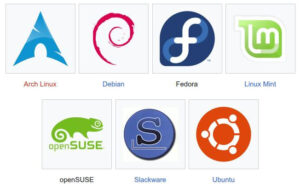This week I had been pursuing a story on a virtualization development which was prematurely suggested/whispered/uncovered at LinuxFest Northwest. However, I understand from those who know more about the subject than I do — which is just about everyone — it was apparently not as groundbreaking as I thought. With my knowledge of virtualization ranking just slightly above my non-existent grasp of quantum physics, I had to put that one aside thanks to a ever-approaching deadline.
 But never mind: Something better came along, and the virtual lemons now become lemonade.
But never mind: Something better came along, and the virtual lemons now become lemonade.
We’ll take a walk down memory lane in a minute, but Jason Hibbets and his team of scribes at Opensource.com published a story today announcing a new page on the site to introduce everyone — from the curious to the not-yet-enlightened and beyond — to Linux/FOSS.
“Here at Opensource.com, we want to help answer that question in a manner that allows others [to] pass it around and share it with the world,” the article states. “So, we created a new resource page which gently introduces Linux, the world’s most popular open source operating system.”
The page, complete with links to other helpful articles, is pretty thorough in its explanation of what Linux is, where it came from and how to give it a spin from a thumb drive. Despite the fact I have a different view of which distros are best for kids — Qimo (pronounced “kim-o,” as in the last part of eskimo, not “chemo”) tops the list, as it should, but the French distro Doudou (add your own joke here) is unfortunately left out — the link there is informative. So for those who are just getting their proverbial feet wet in Linux, this is a godsend.
But wait, there’s more: For the new folks out there, once you install Linux and FOSS, you’re not entirely through yet (though, of course, it’s up to you how deeply you’d like to get involved). Coincidentally, today in an unrelated post on the Universitat Oberta de Catalunya’s Open Thoughts site, Red Hat’s Joe Brockmeier — arguably the man with the best voice in FOSS — writes an article with the apt title, Do Something, Even if It’s Wrong.”
“One of the dirty secrets of open source is that participating in open source is often counter-intuitive for folks who’ve been working in a top-down decision-making culture,” Brockmeier writes. He continues a little later: “What’s worse, we’re also taught to be afraid of making mistakes. Do the wrong thing, and you’ll be ‘blamed’ or held accountable in unpleasant ways. One of the hardest things about working with new contributors is overcoming the urge to be told what to do, wait for permission, and — at all costs — avoid mistakes.”
So there you go: Get out there and run with the ball. If you fumble, we’ll recover it. Boot a grounder? We’re backing you up so the baserunner doesn’t advance. Everything will be OK. As Joe writes, FOSS has developed “a culture where fixing problems is more important than assigning blame. Try it, though. You’ll be amazed how effective it can be when people feel empowered to take on problems without expressly seeking permission for every little thing. Do something, even if it’s wrong. And then, if it was wrong, fix it.”
Now, let’s go back to 2006: It would have been nice to have these articles when I started out in Linux and FOSS nine years ago, introduced by the IT guy from the Green Party of California when I asked where I’d get Adobe products for my statewide campaign for office that year. During the campaign, I kept thinking about how great this paradigm is — people working together to make software free (as in freedom and, in many cases, beer) for public use — and switched gears to work to advocate for FOSS.
That’s my story. FOSS Force has asked you before, I know, but I’ll ask again: How did you get started, and — knowing what you know now — what would you tell your Linux newbie self years ago if you could talk to him/her? Give us your answer below.
One more thing: I didn’t want to let this slip by without mention, and Friday’s wrap-up is too far away. While at Opensource.com this morning, Rikki Endsley posted an excellent story for developers which is worth mentioning. It’s essentially The 8 Highly Effective Habits of Willie Nelson, though that’s not quite the title. It’s not related to the topic above, but it’s worth a read.
The time has come for FOSS Force to grow and offer expanded coverage of free and open source software and free tech. For this reason, we have declared the month of May to be “Pledge Month” on FOSS Force and have launched a fundraising campaign on Indiegogo. You can get all of the details on our campaign page.











Larry, If you have some time… there is an intro to OpenVZ video I can recommend. I need to make a new video that compares and contrasts OpenVZ and Docker. I prefer OpenVZ myself as it has a ton more features and is way more mature.